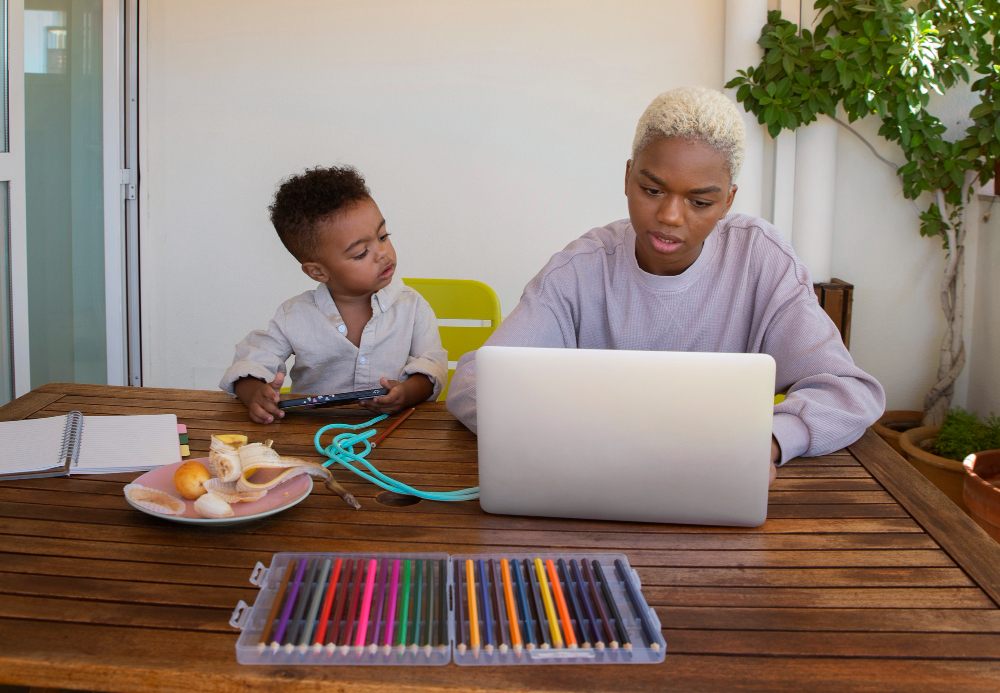Use of Toys
Toys: The Gateway to Imagination
Investing in toys with vibrant colours for your one-year-old can be a highly engaging experience. These toys not only capture their attention but also encourage tactile exploration, helping them connect with their surroundings rather than being fixated on a screen. Playing with toys enhances creativity as children arrange and move them around.
Read to Them
Literary Bonds: Building Minds through Stories
Reading to your child significantly aids in familiarizing them with the sounds in their environment. This practice enhances their listening skills, subsequently contributing to improved speaking abilities. Psychologists emphasize the importance of reading stories to even the youngest children, fostering brain development by connecting spoken words to images on the page and the world around them. Furthermore, reading builds a strong bond between you and your child, fostering concentration and igniting their imagination.
Making Them Assist With Chores
Tiny Helpers: Instilling a Sense of Responsibility
Engage your child in age-appropriate chores. Moving simple items during household tasks keeps them occupied, develops their muscles, and imparts a sense of responsibility.
Watch You During Chores
Observer Mode: Learning Through Watching
Instead of hands-on participation, let your child observe you during chores. This method explains the purpose behind tasks and reinforces the steps involved, creating a lasting impression.
Animation Books
Colourful Pages: Igniting a Love for Reading
Introduce your one-year-old to the enchanting world of animation books. Filled with vibrant visuals, these books captivate their interest and cultivate an early love for reading.
Playing Soft Music
Harmonious Development: Dancing to the Rhythm of Growth
Expose your child to soft music to tune their ears to rhythm and lyrics. Dancing together enhances their listening and speaking skills and adds joy to their developmental journey.
Outdoor Play
Nature’s Classroom: Learning Through Play
Encourage outdoor play to foster social interaction, expression, and alleviate boredom. Interacting with peers enhances communication skills and contributes to a friendly and open demeanour.
Teach Them
Parent as Teacher: Nurturing Skills Through Bonding
Utilize leisure time to teach your child various skills such as writing alphabets, numbers, drawing, and reciting poems. Whether they watch and replicate your actions or explore their creativity, these teaching moments create a strong bond between you and your child, fostering trust and facilitating the learning of new skills.
Conclusion
Without screens, your child can thrive and blossom into a lively, creative, and excellent individual. Embrace these engaging alternatives to screen time, and witness your one-year-old’s growth unfold naturally.
FAQs
Can I introduce screen time occasionally for my one-year-old?
Yes, occasional short sessions are acceptable, but it’s crucial to prioritize other engaging activities for their holistic development.
How do I choose age-appropriate toys for my child?
Opt for toys with bright colours, various textures, and simple shapes that stimulate their senses and encourage exploration.
Is outdoor play really necessary for a one-year-old?
Absolutely. Outdoor play promotes physical activity, social skills, and a connection with nature, contributing to overall well-being.
Are animation books better than traditional picture books for toddlers?
Both have their merits, but animation books with vivid visuals often capture a toddler’s attention, fostering an early love for reading.
What if my child loses interest in the suggested activities?
It’s normal for attention spans to vary. Be patient, introduce variety, and observe what activities resonate most with your child’s interests.
